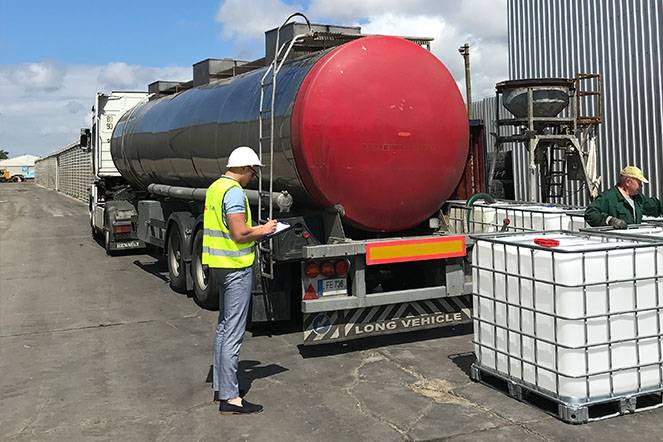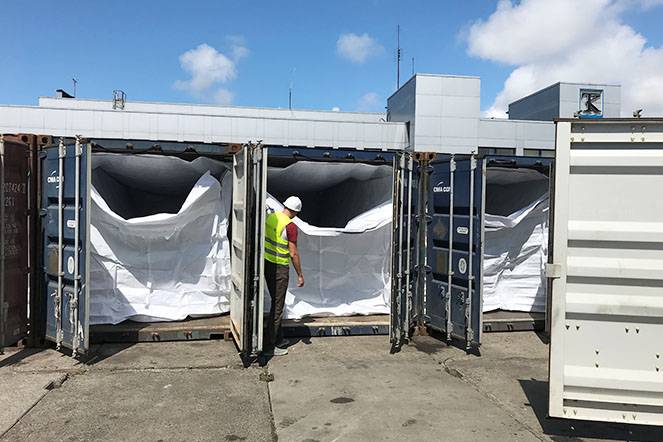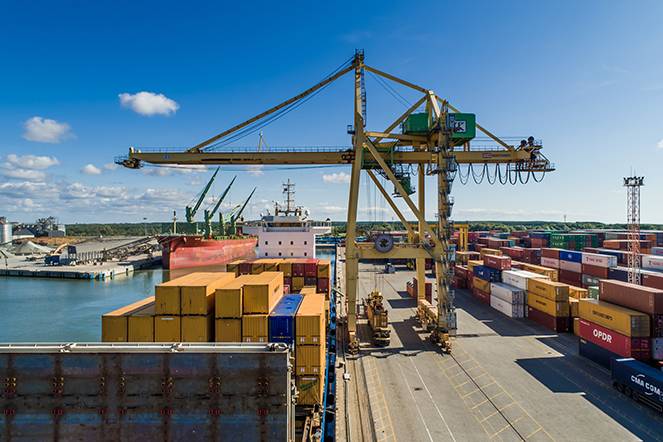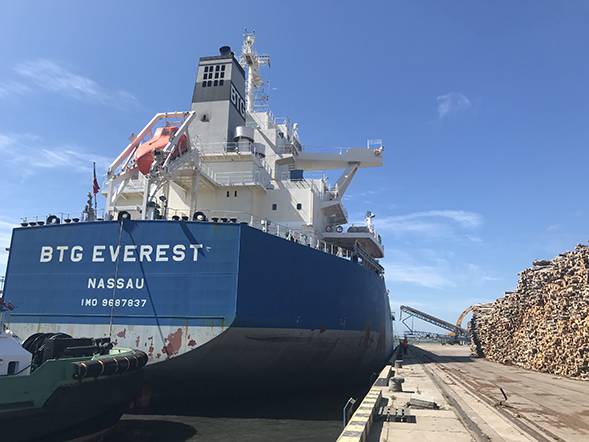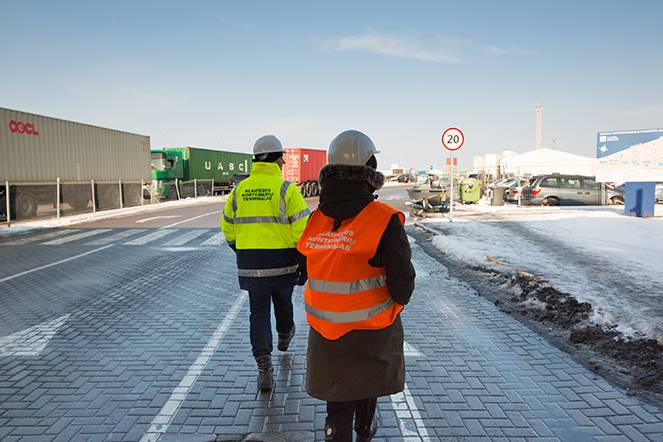Logistics are faced not only with challenges created by war, a solution to that can be offered by shipping
2022 March, 21
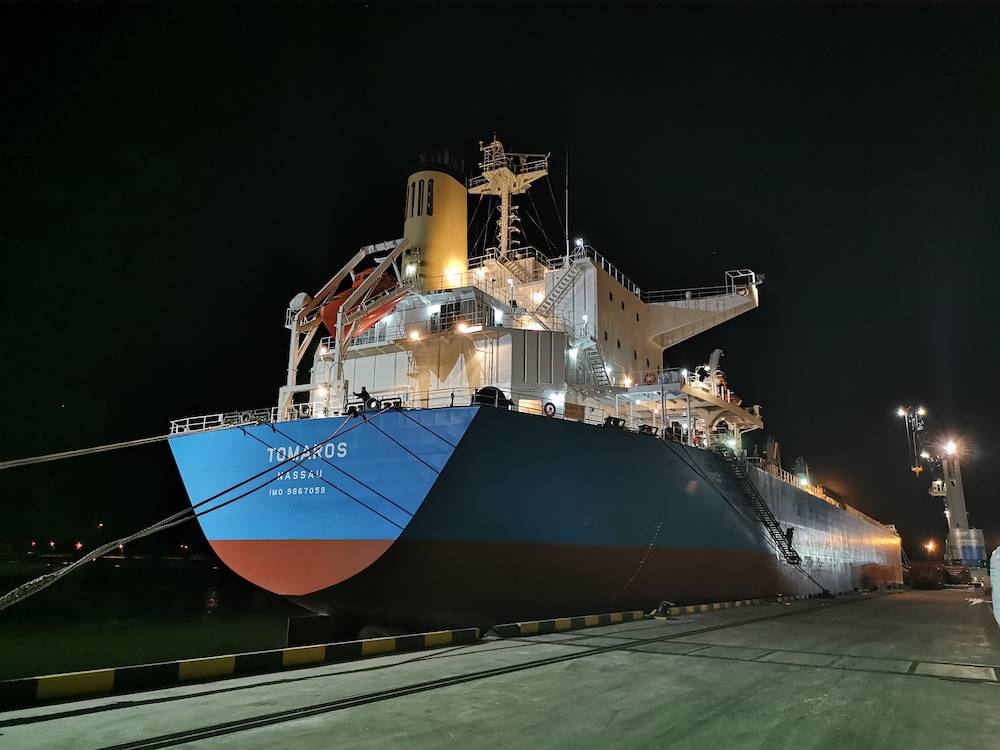
The logistics industry is disrupted. The onset of the war in Ukraine has caused confusion for all, despite the fact that the war alone is no small matter, carriers and logistics companies have been trying for some time to adapt to the requirements of the European Union’s Mobility Package, which fundamentally changes the rules of the game and makes road transportation more difficult.
In the face of the war, supply chains were disrupted and cargo is getting stuck. The number of curtains in our region is rapidly decreasing, so the carriers are no longer able to meet the demand, and the suppliers of certain goods are changing after the termination of the relations with the Russian and Belarus manufacturers. For example, the logistics of metal products can now also be done from Turkey. As a result, the duration and cost of road travel are rising.
In this situation, we should not forget that we are a maritime state and we are not making full use of the potential of sea transport, so this change is the right time to change our logistical habits. We notice that companies are already looking for alternatives and are increasingly looking to Klaipėda port: we receive inquiries and count timber deliveries to the Netherlands and Belgium. I think other cargo will take that road in the near future as well.
Road transport is dominating
In Lithuania, about 45 percent of cargo has been transported by road, and half of that by sea – only 21 percent, until now. About a fifth of cargo – 25 percent – transported by rail. Of course, due to the restriction of the transportation of Belarus fertilizers through Lithuania, these figures will adjust, however, road transport will still remain the leader.
The Mobility Package, launched two years ago in the European Union, is having a major impact on road transport. Requirements have been introduced to return the truck to the place of registration periodically, and updated cabotage rules have made life difficult for carriers and disrupted shippers at the same time. It is estimated that the costs of logistics companies will increase by 10-30% due to this alone. Along with them, freight rates are rising.
The war in Ukraine is exacerbating the situation, as it exacerbates the problem of driver shortage. Over 30 thousand Ukrainians have the right to live and work in Lithuania, most of them worked in the logistics and construction sectors. With the outbreak of the war, a large number of Ukrainians return to Ukraine to defend their country and leaving jobs. As a result, the number of employees able to transport goods by road has decreased even further. And a quick positive outlook is hardly to be expected at this time.
An undiscovered alternative is the port
Carriers and logistics companies are in a truly unenviable position, as their costs have been rising drastically for some time. So I have no doubt that shippers will soon start looking for alternatives to road transport due to rising prices and a reduced supply of trucks. One of them is the transfer of cargo to the port. Bulk shipping has always been, is and will be the cheapest form of logistics, so it is important to evaluate the opportunities it offers when thinking about changes in transportation.
We are a maritime state and this makes it easier to meet the challenges of logistics. Klaipėda port is able to absorb the load on the roads and take over part of the cargo. The time is especially right to move cargo to the port – the abandonment of the transportation of Belarus fertilizers, the termination of relations with Belarus and Russian companies and the consideration of restricting the service of the latter’s ships have reduced the load on shipping companies. And if the threats of the neighbouring country to stop exporting timber to Lithuania are confirmed, there will be even more opportunities to receive new cargo in the port.
As road logistics stalls, the importance of ship chartering increases. Port companies are ready to operate at full capacity in the logistics chain. The port of Klaipėda is able to withstand the load, therefore shipping will ensure the supply of raw materials not only from European countries, but will also facilitate the transportation of cargo from Chinese ports. It is worth thinking about changes in logistics not only for those who export from Lithuania, but for importing companies as well – maybe the cargo you need will reach Lithuania cheaper and easier by ship?
It is also ecologically beneficial
Another significant issue that is also important in tackling climate change is the increasing amount of CO2. It is caused by half-empty trucks returning to the points of registration without being able to collect the required amount of cargo. It is estimated that up to 3 million tons of CO2 will be emitted as a result by 2023.
As European companies strive for more sustainable and greener practices, such emission figures are not encouraging. We can mitigate this effect by handing over general and ro-ro cargo to shipping companies. This will encourage carriers to transport goods by road only on exclusively local routes, thus reducing CO2 emissions. Of course, there will be a loss in terms of logistics time, but the reduced cost of transport will certainly cover it.
It is already worthwhile to transport cargo by ship to Western Europe
Changes could be made primarily by general cargo companies, taking into account both the existing and rising transport costs caused by the application of the Mobility Package and the war in Ukraine. It is already financially rewarding to shift general cargo to ships if operating in the markets of France, the United Kingdom, Spain, and Portugal. These countries can be reached quickly and easily from Klaipėda port.
It is likely that in the near future it will be worth seriously considering shipping logistics for those operating in the Dutch or Belgian markets if land logistics prices continue to fluctuate.
We hear a lot of hesitation and criticism about the application of the Mobility Package: some companies have managed to prepare for it, others have ran out of time. Some of them plan to move their operations abroad or have already done so. Also, a few weeks ago, no one expected Europe to face the challenge of war in Ukraine.
So what will be the real impact of the regulation on the Lithuanian transport and logistics sector – we will see it soon. However, I believe that the transformation of the sector will begin, the importance of the port will increase and part of the cargo will be taken over by shipping companies. And this will be a positive change, because we have the ice-free port of Klaipėda and we are a maritime state.

